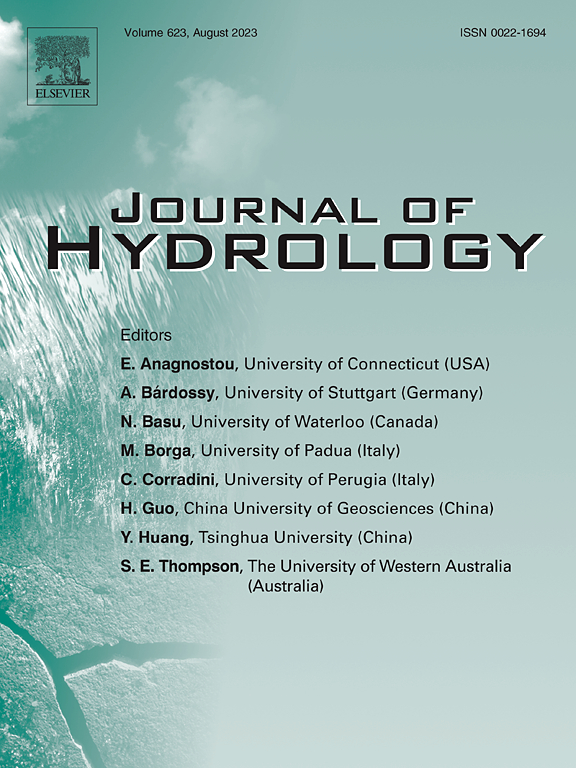The Food-Energy-Water Nexus: Clarifying Misconceptions and Assessing impacts on the Yangtze economic Belt
IF 5.9
1区 地球科学
Q1 ENGINEERING, CIVIL
引用次数: 0
Abstract
Food‐Energy‐Water (FEW) Nexus approach has gained increasing popularity in the last decade. However, the FEW nexus approach cuts the interconnectedness of the food, energy, and water sectors with other important sectors such as population, economy, land use, climate, and so on. Our research is to assess the consequence of isolating the FEW nexus from the other complex human-natural systems. To achieve this objective, this paper presents the comparison of the full model of the Yangtze Economic Belt (ANEMI_Yangtze) and its FEW version (ANEMI_Yangtze_FEW). The study concludes that the FEW nexus approach is inadequate for analyzing food, energy, and water interactions within broader human-natural systems. Isolating these sectors from eco-environmental, social, and economic systems may produce misleading or incorrect insights for regional decision-making.
食物-能源-水关系:澄清误解并评估对长江经济带的影响
食物-能源-水(FEW)关联方法在过去十年中越来越受欢迎。然而,“少数联系”方法切断了粮食、能源和水部门与其他重要部门(如人口、经济、土地利用、气候等)的相互联系。我们的研究是评估将少数联系从其他复杂的人类-自然系统中分离出来的后果。为了实现这一目标,本文提出了长江经济带完整模型(anemi_扬子江)和少数模型(ANEMI_Yangtze_FEW)的比较。该研究的结论是,“少数联系”方法不足以分析更广泛的人类-自然系统中食物、能源和水的相互作用。将这些部门从生态环境、社会和经济系统中孤立出来,可能会对区域决策产生误导或错误的见解。
本文章由计算机程序翻译,如有差异,请以英文原文为准。
求助全文
约1分钟内获得全文
求助全文
来源期刊

Journal of Hydrology
地学-地球科学综合
CiteScore
11.00
自引率
12.50%
发文量
1309
审稿时长
7.5 months
期刊介绍:
The Journal of Hydrology publishes original research papers and comprehensive reviews in all the subfields of the hydrological sciences including water based management and policy issues that impact on economics and society. These comprise, but are not limited to the physical, chemical, biogeochemical, stochastic and systems aspects of surface and groundwater hydrology, hydrometeorology and hydrogeology. Relevant topics incorporating the insights and methodologies of disciplines such as climatology, water resource systems, hydraulics, agrohydrology, geomorphology, soil science, instrumentation and remote sensing, civil and environmental engineering are included. Social science perspectives on hydrological problems such as resource and ecological economics, environmental sociology, psychology and behavioural science, management and policy analysis are also invited. Multi-and interdisciplinary analyses of hydrological problems are within scope. The science published in the Journal of Hydrology is relevant to catchment scales rather than exclusively to a local scale or site.
 求助内容:
求助内容: 应助结果提醒方式:
应助结果提醒方式:


